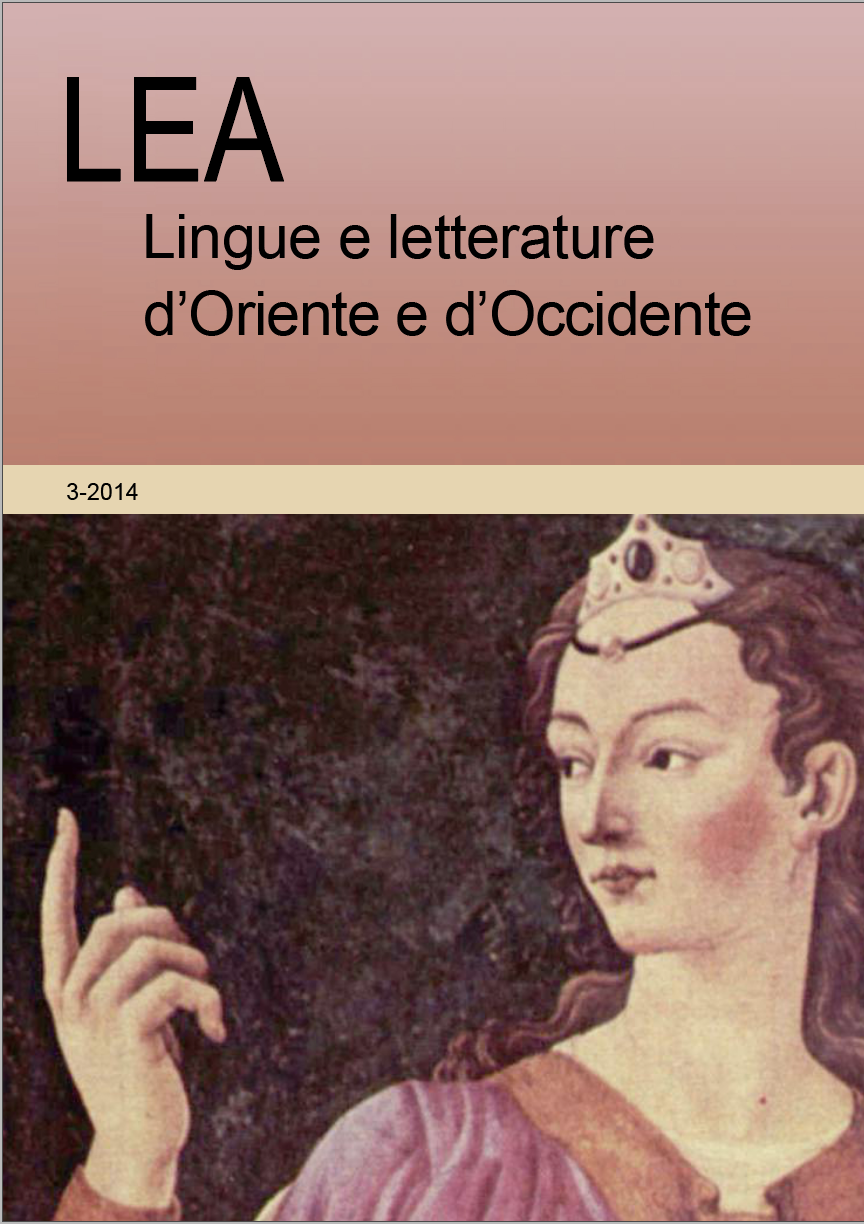Forme d’oralità costruiscono la modernità letteraria argentina nelle prime decadi del ‘900
Published 2014-12-13
Keywords
- Argentinean literature,
- Avant-garde,
- orality,
- modernity
Abstract
During the 1920s, in Argentinean literature, dialogic needs in literary works on the one hand, and awareness of the communicative power of spoken porteño on the other, determined a complex linguistic situation in writers. Orality became a necessity both for the new figure of the professional writer, who required verism and communication with the reader, and [for?] left-wing authors who were feeling the need for a didactic purpose in writing, as well as for the very avant-garde that was feeling the need to use orality in their search for linguistic rebellion. However, it was the narrative art of Roberto Arlt, with his work El juguete rabioso in 1926, that marked the moment when immigration was finally absorbed by the socio-cultural make-up of the country and oral language was incorporated into Argentinean literature. This language coming from the city streets and incorporated into literature in a confused manner, was projected in a way similar to that of the novels of the ‘60s, and has been a feature of Argentinean literature up to the present day.



